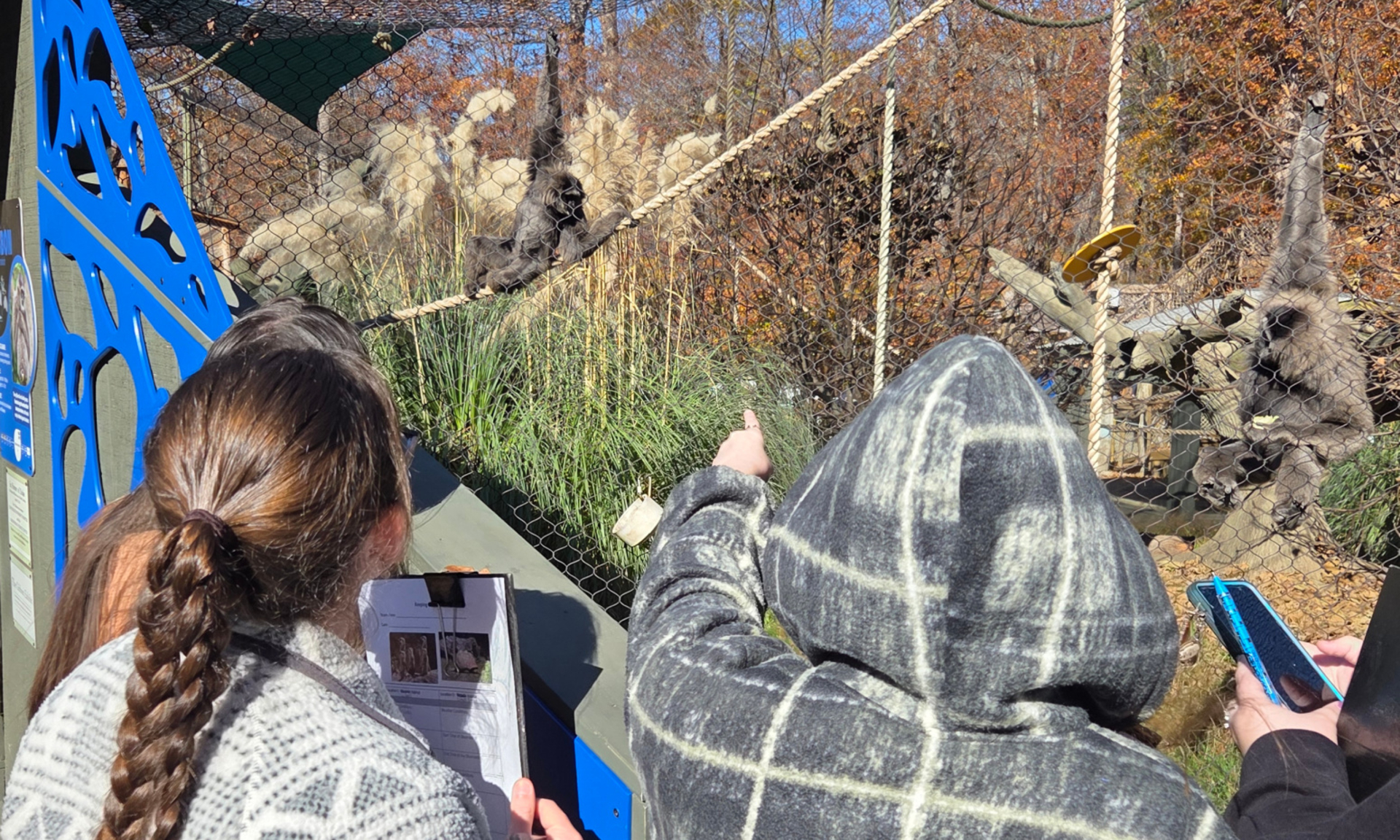
During a recent visit to the Greensboro Science Center, Guilford students recorded the behavior of gibbons, apes that live in the tropical and subtropical forests of Southeast Asia.
Education Studies students put theory into practice, using Project WILD training to learn how to turn real-world environmental science into creative, engaging, and interdisciplinary classroom lessons.
“(Project WILD) allows kids to engage in science in an experiential way, allows them to have fun, which increases their rate of engagement."
Five Guilford College Education Studies students recently took part in a Project WILD training session at the Greensboro Science Center, where they received hands-on, interdisciplinary experiences blending environmental science with practical classroom teaching.
The group spent part of their morning learning about White-nose syndrome — a fungal disease that has caused dramatic declines in North American bat populations. Science Center educators explained how the fungus affects hibernating bats and why those losses matter to humans, including the role bats play in protecting crops by eating thousands of insects each night.
Students then practiced turning that information into interdisciplinary classroom lessons. Under the guidance of Lincoln Financial Professor of Education Studies David Hildreth, along with Alison Manka, School and Aquarium Programs Manager at the Center, students engaged in activities that combined ecology with basic math skills, such as calculating how many insects a bat consumes or estimating the impact of population declines on local ecosystems.
Students also got to observe and record the behavior of gibbons, a type of ape that live in the tropical and subtropical forests of Southeast Asia. They also learned more about the care, diet and behaviors of pygmy hippos, native to West Africa.
David, who has used Project WILD in his courses for more than 25 years, said the program offers teachers a model for engaging students across multiple subject areas. “It allows kids to engage in science in an experiential way, allows them to have fun, which increases their rate of engagement,” he says. “And, from a teacher’s perspective, it’s very interdisciplinary, which affords them the opportunities to bring multiple subject areas into their teaching of science. It shows students that science is not isolated. It’s something everyone does, using all kinds of ways of thinking–especially thinking critically and using science process skills.”
At Guilford, that kind of hands-on learning isn’t the exception – it’s the rule. Experiential learning is woven into every course across the curriculum, reflecting the College’s deep belief that students learn best by doing. Whether they’re collecting water samples in biology, creating podcasts in history, or developing science classes based on bats, Guilford students are expected to connect theory with practice. It’s an approach that not only builds confidence and critical-thinking skills but also prepares graduates to translate knowledge into real-world impact – the kind of meaningful, engaged work that defines a Guilford education.
Want to know more about how a Guilford experiential education can prepare you to pursue your passions? Contact Steve Mencarini.

